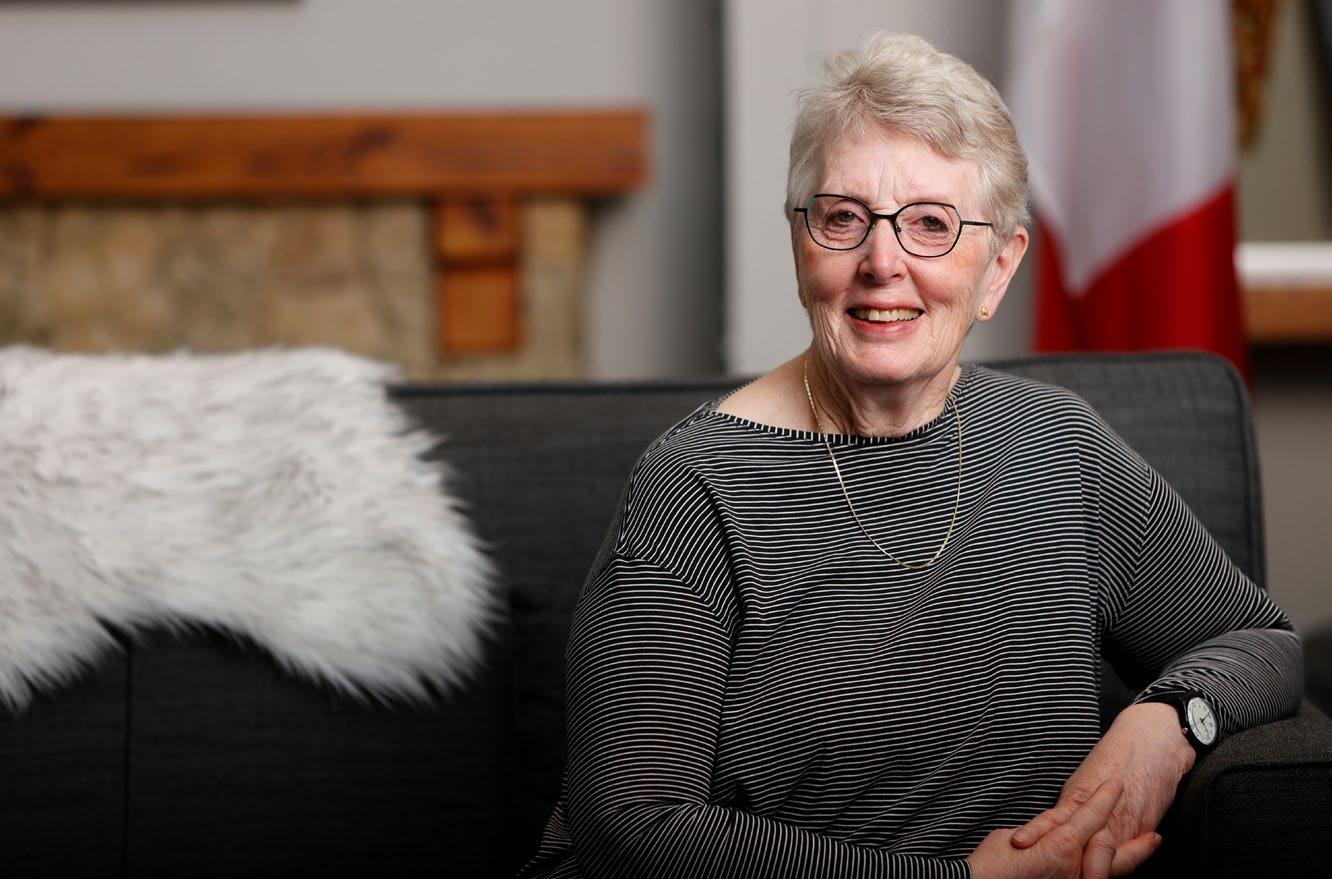
3 minute read
Emergency Preparedness
Eileen Grant, Manager Oak Bay Emergency Program
Now is the perfect time to check your emergency plan for what you need to get ready for ensuring you have a safe and warm winter.
What do you need to know about winter preparedness?
Let’s start with snow and ice. Have a snow removal plan. Make sure you have a good snow shovel and a supply of deicer on hand before the cold weather arrives. If you don’t want to do the shoveling, talk to your gardener and teenage neighbors about being on call to clear your sidewalks and pathways when it snows. It is hard to find someone when the snow starts falling.
How can you prepare in advance for power outages?
Check that all your flashlights are working and have extra batteries on hand. Please don’t use candles due to the fire hazard. Have a supply of blankets ready to use. Sleeping bags are a great way to keep warm. Have a supply of food that you don’t have to cook on hand. Don’t forget a supply of water. Stock up on bottled water and food in advance of cold and icy weather. By planning in advance you won’t have to brave the icy roads and walkways and the crowds that forgot to get prepared.
What steps can people take to have a safe winter?
Looking after our health in the winter can be a challenge. Arrange to get your flu shot. Make sure your COVID shots up to date. Have a supply of prescription and over the counter medications on hand so you don’t have to venture out in bad weather. Check if your pharmacy delivers - many do. Slipping and falling on icy days is common. Check the treads on your boots/shoes to make sure you can walk safely outdoors. Service your car and have your winter tires put on before the freezing temperatures hit. Always keep your fuel level above half full. You never know when you’ll have to use your car for transportation or shelter or for how long. Make sure all your appliances, including furnaces and heat pumps, are in good working order. Fall is the perfect time to get repairs and maintenance check-ups done. Ensure that all filters are clean. Portable heaters are a popular way to add warmth to our homes. Make sure all heaters are CSA approved. Never leave them running unattended or while you sleep. Always follow manufacturer’s recommendations for distance to combustibles. Know where your water and utility shut offs are in case you need to turn them off. Read your home insurance policy before you are in an emergency. Make sure you understand what is included and what isn’t. Some policies include hotel coverage if you are required to leave your home due to an emergency and some policies don’t. You may want to update it. Always make sure you have an up-todate Grab & Go kit ready to grab and go in an emergency.
Communication is always vital but can be lifesaving during a winter emergency. What can we do to ensure we can call for help?
Keep your cell phone, laptop or iPad charged up. Have a portable battery for your cell phone just in case. Introduce yourself to your neighbours and share your plans with them. Ask for help if you need it. Always offer to reciprocate. Research shows that it is our neighbours who are our lifelines when there is an emergency. Make a list of trusted websites and helpful telephone numbers for services that can answer questions you may have about utility outages and problems, health related questions or community services.
The secret to being safer during an emergency is to prepare in
advance.
Remember the Preparedness
mantra: know the risks; have a plan; have your kits; know your neighbours. For further information contact the Oak Bay Emergency Program (OBEP) at: obep@oakbay.ca or 250-592-9121.






